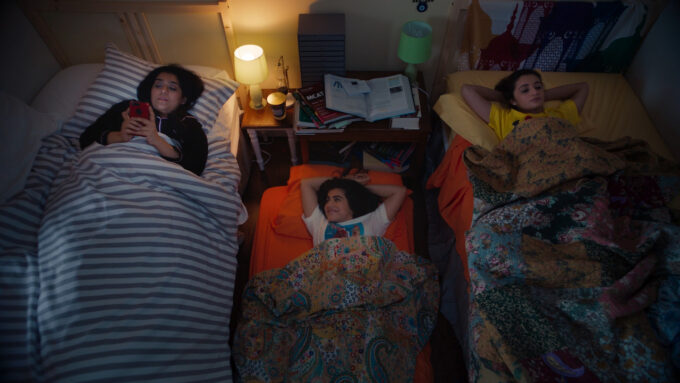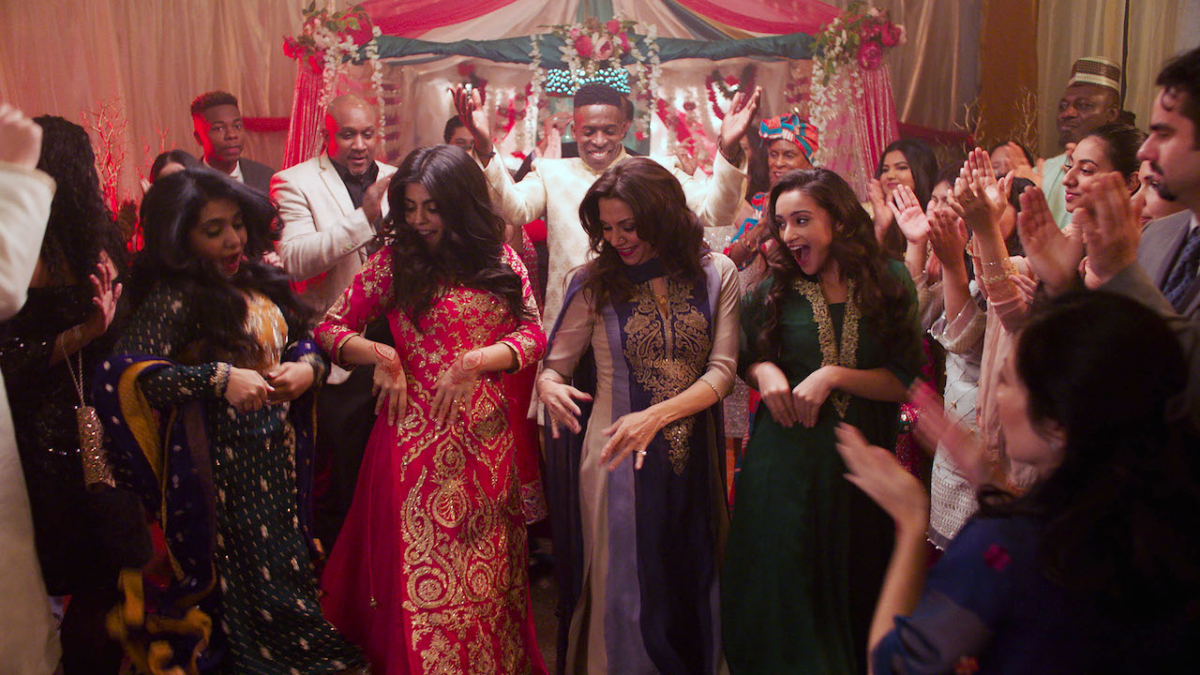Written By: Jeremy Lim
This article may contain spoilers.
Romantic comedies seem to get a bad rap from a lot of people.These detractors point to the formulaic structure that rom-coms like to continuously dole out to the public. Some like to deride the saccharine feeling these films try to force on you. Some just hate how unrealistic rom-coms depict love and relationships. All of these complaints are reasonable ones. However, as of late, the romantic comedy genre has received a bit of a jolt, specifically from Asian voices. With films like “Always Be My Maybe,” “Crazy Rich Asians,” “To All The Boys I’ve Loved Before,” Asian Americans have rejuvenated a genre that needs a life-saving jolt every 15 years or so.
However, with all of these films, the focus and spotlight is placed on East Asia. Enter “Americanish,” directed by Florida native Iman Zawahry, a film that shows American Muslim women in a fun, positive light. Asian stories, specifically South Asian stories, have seen an uptick in representation but they almost exclusively focus on the doom and gloom of either war, terorrism or poverty. These stories are important but “Americanish” bucks that trend and portrays Pakistanis and Pakistani Americans as multifaceted people rather than as objects of pity.
“Americanish” follows three women, Sam (co-writer and producer Aizzah Fatima), her younger sister Maryam (Salena Qureshi) and their “fresh off the boat” cousin Ameera (Shenaz Treasury) as they try to navigate life and love in New York City. Along the way, these three characters face many roadblocks whether that be cultural, familial or self-imposed ones. They act as the anchor to a substantial ensemble cast, and even though every single character has at least one chance to shine, Sam, Maryam and Ameera are the obvious stars.
Sam is the oldest of the three and absorbed in her career. She manages the Twitter account of an old, racist curmudgeon of a politician, very Trump-like in his appearance. In a cast of lovable goofballs, she is the voice of reason of the bunch. Maryam is Sam’s younger sister and early on in the film, we see her studying and working towards her goal of attending Harvard Medical School to become a bonafide doctor. Throughout the film, her main conflict comes from juggling her desires and her partner’s. Ameera, on the other hand, is not particularly concerned with her career. Instead, this spontaneous character is all about looking for a nice Pakistani American man who just happens to be a doctor.
This trio, which you get to know very well over the course of 90 minutes, feels authentic. They feel nuanced, like actual human beings. In an interview with both Iman Zawahry and Aizzah Fatima this month, Zawahry told me, “Something really important to both of us is telling an authentic story. During the four-year writing process, we’ve had such heated discussions about what we should put in, what we shouldn’t; what is this that’s real, what is that’s not.” Highlighting an argument between Sam and her mom (Lilette Dubey) sparked by outright racism against Black people is tough to show the world but that’s what representation entails, showing the world both the good and the bad. Even something as simple as introducing Sam to the viewer through the lens of promiscuity, waking up in bed next to an unknown guy, took careful consideration.
The film also does a great job in keeping the audience on its toes, moving from comedy to drama seamlessly. Moments of serious, gripping reality are present in this film, and they hit you hard when they do, but the film isn’t all one note. Scenes of Ameera teaching Gabriel (Godfrey), the owner of a local grocery store, how to make a true mango lassi are shown alongside scenes of Sam and Maryam having tense, painful arguments about their family life.
“I get frustrated that everything has to be super heavy, super dramatic, or super victimized. That’s not the life I live, that’s not the life my friends live, or the people that we know, so we really wanted to put those things on screen, really motivated and loved by the concept of Black joy. It’s the same thing with Muslim joy, female joy,” Zawahry said.

The diversity of stories being told isn’t the only mark of representation happening. Zawahry and Fatima were so adamant about representation that they went above and beyond the call of duty, ensuring American Muslim women were abound in all phases of the film. “95% of our investors are women, Muslim women,” Zawahry said. On top of that, the crew was majority women. “When we were looking for [our] crew, a lot of people were recommending men but Iman was, like, ‘No, we’re gonna get women,’” Fatima said of the production process.
Another mark of true authenticity and representation was the effort that was made during the casting of the film. Fatima said, “We don’t want to cast American actors and then ask them to put on an accent because I’m constantly in that situation and I hate that so much.” In fact, the character of Sam was originally not meant for Fatima at all. “You look at my reel and everything I’ve ever done is with me in an accent. Me doing an Indian accent, me doing a Middle Eastern accent. Me wearing a hijab, me not wearing a hijab speaking a foreign language. And I was like, ‘Dude, when do I ever get to play an American?’”
That being said, the filmmakers do not claim to represent their entire community. “There’s things that Muslims are upset about in our film a lot of times. We had a situation at one of our film [screenings] where a Muslim was upset about it and I had to tell them, ‘This is one story. This is what makes it authentic, what makes it real, and there are many other stories.’”
And Zawahry and Fatima aren’t just waiting around for other people to tell those stories; they’re moving on to new projects. Zawahry has the script for her second feature film finished based on her childhood in Panama City, Florida while Fatima has a sketch comedy show involving American Muslim women in the works and even plans to collaborate with Zawahry on some of those sketches. “Americanish” represents one small piece of the American Muslim identity and both Zawahry and Fatima are dedicated to bringing more of these experiences to the forefront.
“Americanish” screens at the 44th Asian American International Film Festival. Ticket and screening information can be found here.

